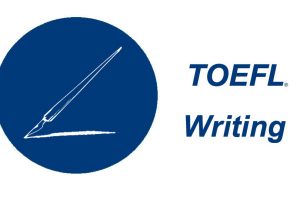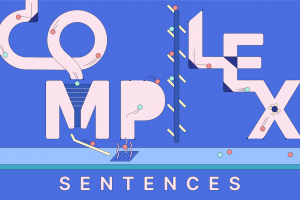واژگان پیشرفته آیلتس : موضوع اقتصاد در آیلتس (1)
- Posted by درخت جاویدان
- Date 24 دی 1399
- Comments 0 comment

واژگان آیلتس
بارها از اهمیت گسترش دایره لغات سخن گفته ایم. از آنجایی که این روزها به دلیل همه گیری کرونا و دیگر مشکلات، مسایل اقتصادی بطور چشمگیری فراگیر شده است، خوب است با واژگان مناسب برای صحبت از موضوع اقتصاد در آیلتس آشنا شوید.
موضوع اقتصاد در آیلتس
موضوع اقتصاد خیلی ساده نیست حتی در زبان فارسی. بنابراین سعی کنید واژگان زیر را جستجو کنید و مثال های زیادی برای هریک بخوانید تا بخوبی آنها را یاد بگیرید.
|
Asset-stripping (noun) |
the practice of buying a company which is in financial difficulties at a low price and then selling everything that it owns in order to make a profit |
The businessman bought the company with the intention of asset-stripping it and then selling for a profit |
|
Bailout (noun) |
an act of giving money to a company, a foreign country, etc. that has very serious financial problems |
The airline was saved by a government bailout. |
|
Black market (noun) |
an illegal form of trade in which foreign money, or goods that are difficult to obtain, are bought and sold |
You could buy anything you needed on the black market. |
|
Boom (noun) |
sudden increase in trade and economic activity; a period of wealth and success |
Living standards improved rapidly during the post-war boom. |
|
broker/stockbroker (noun) |
a person or an organization that buys and sells shares for other people |
The bonds were sold through a stockbroker. |
|
Budget (noun |
the money that is available to a person or an organization and a plan of how it will be spent over a period of time |
We decorated the house on a tight budget (=without much money to spend). |
|
Budget (verb) |
[intransitive, transitive] to be careful about the amount of money you spend; to plan to spend an amount of money for a particular purpose |
If we budget carefully we’ll be able to afford the trip. budget for something I’ve budgeted for two new members of staff. |
|
Capitalism (noun) |
an economic system in which a country’s businesses and industry are controlled and run for profit by private owners rather than by the government |
the growth of industrial capitalism in the West |
|
Collapse (verb) |
a sudden fall in value |
the collapse of share prices/the dollar/the market |
|
Competition (noun) |
[uncountable] competition (between/with somebody) (for something) a situation in which people or organizations compete with each other for something that not everyone can have |
We are in competition with four other companies for the contract. |
|
Competitor (noun) |
a person or an organization that competes against others, especially in business |
We produce cheaper goods than our competitors. |
|
Consolidate (verb) |
[transitive, intransitive] consolidate (something)(specialist) to join things together into one; to be joined into one |
All the debts have been consolidated. |
|
Corporate (adj) |
connected with a corporation |
The corporate identity has been damaged by the latest allegations. |
|
Depreciate (verb) |
[transitive] depreciate something (business) to reduce the value, as stated in the company’s accounts, of a particular asset over a particular period of time |
The value of Bitcoin has depreciated in the last year. |
|
Depression (noun) |
[countable, uncountable] a period when there is little economic activity and many people are poor or without jobs |
The country was in the grip of an economic depression |
|
Deregulate (verb) |
[often passive] deregulate something to free a trade, a business activity, etc. from rules and controls |
The country has benefitted from the deregulated financial markets. |
|
Dividend (noun) |
an amount of the profits that a company pays to people who own shares in the company |
The shareholders in Apple received dividend payments of 75p per share |
|
downtrend/downturn (noun) |
situation in which business activity or performance decreases or becomes worse over a period of time |
There was a gradual downtrend in the price of grain. a downturn in sales/trade/business |
|
Entrepreneur (noun) |
a person who makes money by starting or running businesses, especially when this involves taking financial risks |
Richard Branson is one of the most successful British entrepreneurs |
|
Equilibrium (noun) |
a state of balance, especially between opposing forces or influences |
We have achieved an equilibrium in the economy. |
|
Employment (noun) |
1 [uncountable, countable] work, especially when it is done to earn money; the state of being employed |
Graduates are finding it more and more difficult to find employment. |
|
Fair-trade (adj) |
involving trade which supports producers in developing countries by paying fair prices and making sure that workers have good working conditions and fair pay |
We buy 10% of our bananas from fair-trade sources. |
|
Fiscal (adj) |
connected with government or public money, especially taxes |
The country’s fiscal system |
|
Fraudulent (adj) |
connected with government or public money, especially taxes |
The company had to remove their advertisement because it was found to make fraudulent claims. |
|
Free enterprise (noun) |
an economic system in which private businesses compete with each other without much government control |
Many people praise capitalism for its focus on free enterprise without all of the government interference that other financial systems are hindered by. (businessdictionary.com) |
|
Free market (noun) |
an economic system in which the price of goods and services is affected by supply and demand rather than controlled by a government |
She was a supporter of the free market economy. |
|
Free trade (noun) |
a system of international trade in which there are no restrictions or taxes on imports and exports |
The EU is a huge free-trade area. |
|
Globalisation (noun) |
the fact that different cultures and economic systems around the world are becoming connected and similar to each other because of the influence of large multinational companies and of improved communication |
Globalisation has offered new opportunities, however it is reducing the individuality of countries. |
|
Hyperinflation (noun) |
a situation in which prices rise very fast, causing damage to a country’s economy |
Unfortunately, hyperinflation is making basic necessities unaffordable in Venezuela. |
|
Incentive (noun) |
[countable, uncountable] incentive (for/to somebody/something) (to do something)something that encourages you to do something |
There is no incentive for people to save fuel. The government created incentives to encourage savings. |
|
Inflation (noun) |
a general rise in the prices of services and goods in a particular country, resulting in a fall in the value of money; the rate at which this happens |
Wage increases must be in line with inflation. |
|
Insider trading (noun) |
the crime of buying or selling shares in a company with the help of information known only by those connected with the business, before this information is available to everybody |
The stockbroker was accused of insider trading because his brother worked in a company that he invested in. |
|
Instability (noun) |
the quality of a situation in which things are likely to change or fail suddenly |
The country has political and economic instability. |
|
Interest (noun) |
[uncountable] interest (on something) (finance)the extra money that you pay back when you borrow money or that you receive when you invest money |
The money was repaid with interest. Interest rates have risen by 1% |
|
Investment (noun) |
[uncountable] the act of investing money in something |
This country needs investment in education. |
|
Interventionism (noun) |
the policy or practice of a government influencing the economy of its own country, or of becoming involved in the affairs of other countries |
The UN adopted a more interventionist approach in the region. This interventionist approach stands uneasily alongside the free-market rationale |
|
Laissez-faire (noun) |
the policy of allowing private businesses to develop without government control |
The government believed in Laissez-Faire economics, where humans affected the markets due to their selfish interests. |
|
Launder (verb) |
launder something to move money that has been obtained illegally into foreign bank accounts or legal businesses so that it is difficult for people to know where the money came from |
Most of the drugs money was laundered through Swiss bank accounts. |
|
Leveraged buyout (noun) |
a business arrangement in which someone buys a company by borrowing money based on the value of the company that is being bought |
Manchester United was bought using a leveraged buyout, the investors used the stadium and high revenues to finance the deal. |
|
Liquidity (noun) |
the state of owning things of value that can easily be exchanged for cash |
Financial institutions must maintain sufficient liquidity to meet the demands of depositors. |
You may also like

انواع مقالات تافل برای تسک Independent Essay


